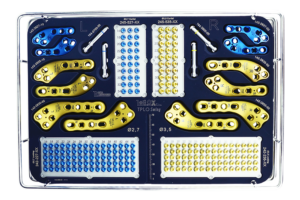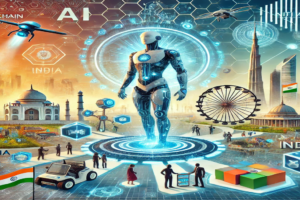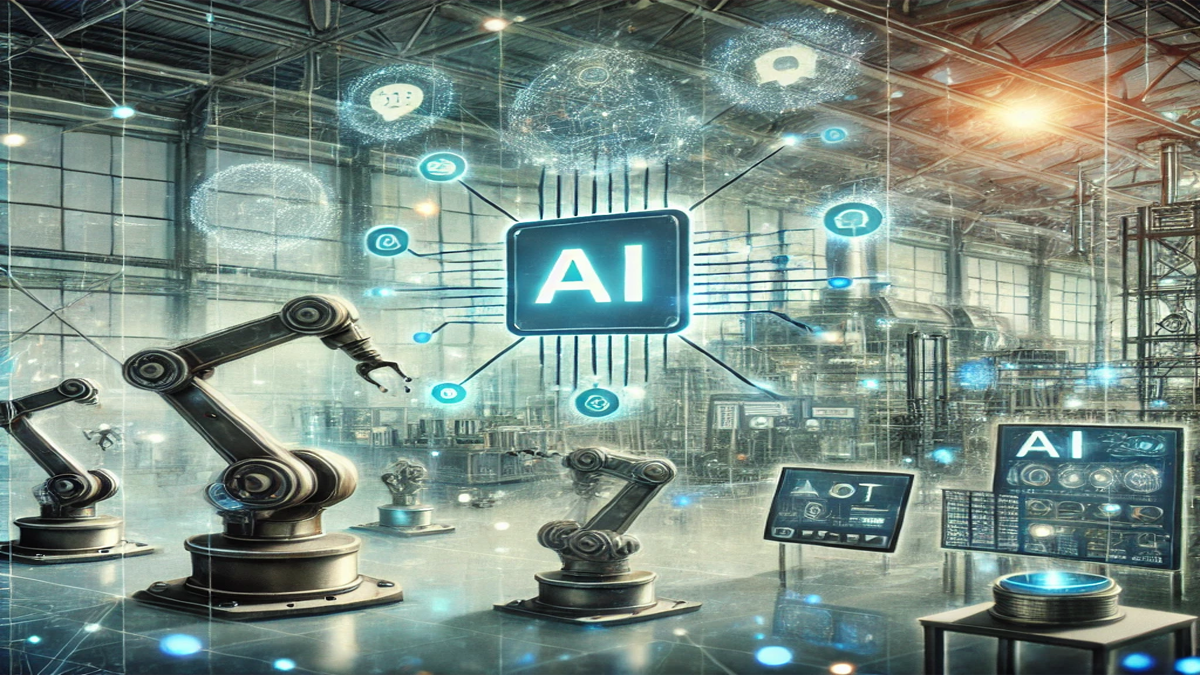Technology is evolving faster than ever before, and artificial intelligence is at the heart of this transformation. Indeed, from healthcare to entertainment, AI is changing how we work, live, and interact. The tech industry, in particular, has wholeheartedly embraced AI, seeing it as a powerful tool to solve complex problems, improve productivity, and create new possibilities.
Whether it’s the rise of smart devices or advanced data analysis, AI is increasingly shaping modern life in ways we couldn’t have imagined just a few years ago. Moreover, AI enables innovations that were once thought impossible, accelerating progress across industries and bringing about profound changes in everyday life.
According to the BBC, AI is projected to add $15.7 trillion to the global economy by 2030, significantly impacting various sectors, including healthcare, finance, and supply chain management.
This blog will explain seven ways AI is revolutionising the tech industry, making things more efficient, innovative, and exciting for businesses and consumers alike.
1. Transforming Software Development with Smart AI Computers
Image source: Cachefly
One of the most significant ways AI is shaping the tech industry is through software development. Smart AI computers are now used to write and optimise code, making the development process faster and more efficient.
This technology can analyse vast amounts of data to find patterns and solve problems, which helps developers create better software in less time. It can even automate routine coding tasks, allowing programmers to focus on more complex challenges.
- AI-assisted coding tools make writing code easier
- AI can debug code and suggest improvements
- Smart PCs can create more secure software by identifying vulnerabilities
By integrating AI into software development, companies can launch products quicker, fix bugs faster, and improve the overall quality of their offerings.
2. Revolutionising Customer Service with AI Chatbots
AI-powered chatbots are transforming the way businesses interact with customers. These smart-systems can provide instant responses to customer inquiries, handling everything from simple questions to complex support issues.
With the ability to learn from each interaction, chatbots improve over time, delivering more accurate and helpful responses. This not only enhances customer satisfaction but also frees up human agents to focus on more intricate cases.
- Chatbots offer 24/7 customer support
- They handle multiple inquiries at once without delays
- AI can analyse customer sentiment and provide tailored responses
As more companies implement AI chatbots, customer service becomes more efficient, and businesses can save time and money by reducing the need for large support teams.
3. Enhancing Data Analysis and Decision-Making
Image source: Yandex
Data is one of the most valuable assets in the tech industry, and AI is making it easier to analyse and extract meaningful insights from vast amounts of information.
The University of York says that companies using AI in their supply chains have seen a 15% reduction in logistics costs and a 35% decrease in inventory levels.
Smart AI computers can process data at lightning speeds, identifying patterns and trends that would take humans much longer to spot. This leads to smarter business decisions and better strategic planning.
- AI tools can identify customer preferences and predict market trends
- Data analysis powered by AI helps companies make quicker and more informed decisions
- AI models can detect anomalies and risks before they become major problems
AI’s ability to handle large datasets means businesses can stay ahead of the competition, make data-driven decisions, and improve their overall performance.
4. Empowering Smart Devices and the Internet of Things (IoT)
The rise of the Internet of Things (IoT) has brought about an era of smart devices, and AI is at the heart of this revolution. Smart homes, smart cities, and connected devices are all powered by AI algorithms that enable them to learn and adapt to users’ preferences.
Whether it’s your thermostat adjusting the temperature or your fridge suggesting recipes based on the items inside, AI is making these devices more intuitive and helpful.
- AI makes devices like smart speakers and home assistants more responsive
- It allows connected devices to communicate with each other and share data
- AI-powered IoT systems optimise energy use and improve convenience
The integration of AI with IoT opens up new possibilities, making everyday life more seamless and efficient. With AI, smart devices are becoming more than just tools – they’re becoming intelligent companions that enhance the user experience.
5. Revolutionising Cybersecurity with AI
Image source: News-Myseldon
As cyber threats continue to evolve, businesses need more advanced solutions to protect their data and systems. AI is playing a crucial role in cybersecurity, using machine learning to detect threats before they cause harm. By analysing patterns of behaviour, AI can identify potential security breaches and take action in real time to prevent attacks.
- AI can monitor network activity and identify unusual behaviour
- Machine learning models can predict and block new types of cyberattacks
- AI-driven security systems respond faster than traditional methods
AI’s ability to adapt to new threats makes it an invaluable tool for safeguarding sensitive information, keeping both businesses and consumers safe in the digital age.
6. Improving Personalised Experiences in Marketing
Personalisation is key to modern marketing, and AI is making it easier for companies to tailor their messages to individual customers. AI analyses customer data, such as browsing habits and purchase history, to create personalised recommendations and advertisements.
This level of personalisation increases engagement, drives conversions, and builds stronger relationships between brands and consumers.
- AI-powered algorithms suggest products based on user preferences
- Personalised content improves customer engagement and loyalty
- AI analyses consumer behaviour to create more targeted marketing campaigns
With AI, businesses can reach the right people with the right message at the right time, making their marketing efforts more effective and efficient.
7. Advancing Healthcare with AI
AI is also making significant strides in healthcare, transforming how doctors diagnose and treat patients. From analysing medical images to predicting patient outcomes, AI is improving the accuracy and speed of healthcare services.
AI has already been used to develop tools that can detect diseases like cancer and heart conditions at earlier stages, helping save lives.
- AI algorithms assist in diagnosing illnesses with higher accuracy
- AI tools help doctors make quicker and more informed treatment decisions
- Smart AI systems can predict disease progression and recommend personalised treatments
By integrating AI into healthcare, doctors can provide better care, and patients can receive faster, more accurate diagnoses, improving overall health outcomes.
Conclusion
AI is no longer just a futuristic concept. It is here, shaping modern life in the tech industry in ways we never thought possible. From software development to healthcare, AI makes processes faster, smarter, and more efficient.
As smart AI computers evolve, we can only imagine the future. The tech industry will keep pushing boundaries, using AI to innovate and improve how we live and work. The impact of AI is undeniable, and it’s only just beginning.











